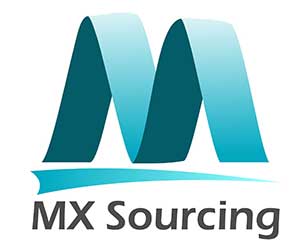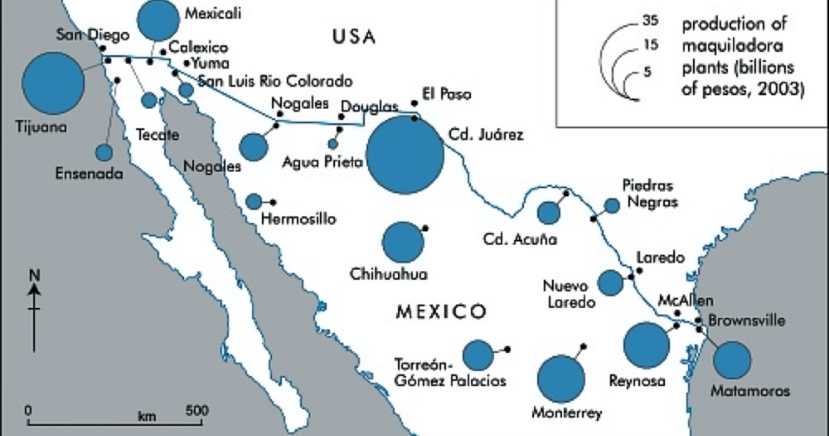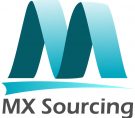

What is a Maquiladora?
The term maquiladora refers to a factory or manufacturing plant in Mexico. These corporations are approved for operation by the country’s Secretariat of Commerce and Industrial Development under a decree established in 1989 and are owned by foreign entities.
Maquiladoras were first developed in the 1960s as a way to encourage foreign investment and address unemployment. As such, they usually operate near the US – Mexico border. Companies that operate under the maquiladora model are able to take advantage of numerous benefits. The products manufactured by these factories are normally exported beyond the Mexican border.
Key Takeaways
- A maquiladora is a low-cost factory in Mexico that is owned by a foreign corporation.
- Facilities are usually located near the US – Mexico border.
- These plants assemble products and export them back to the United States and other countries.
- Companies can capitalize on a cheaper labor force in Mexico and certain tax advantages under USMCA and the IMMEX Program.
Understanding a Maquiladora
As noted above, a maquiladora is a factory located in Mexico but owned and run by a foreign entity. The first plants of this kind were established in 1961 to help stimulate the domestic market and attract foreign investment. Many of these companies are located along the United States-Mexico border. The structure of a maquiladora system is set up so that the parent company is located in the United States while the manufacturing operation or factory is located in Mexico.
The Mexican Secretary of the Economy determines whether a plant is officially considered a maquiladora. This official designation is important because it qualifies the plant for unlimited foreign capital investment and duty-free imports. Duty-free imports apply to the raw and semi-finished materials shipped after manufacture or assembly, as well as to the machinery used in the manufacturing process.
The factories that participate in the maquila program, which are also known as twin plants, manufacture a variety of goods. In fact, there are thousands of maquiladoras that produce everything from clothing and consumer electronics to cars, drones, medical devices, and aircraft components. Export may be direct or indirect, whether that’s through the sale of products or shipping through another factory or export company.
These factories have certain tax advantages that make them attractive to businesses. Companies can capitalize on a cheaper labor force in Mexico and also receive the benefits of doing business in the U.S. The presence of maquiladoras contributed significantly to the industrialization of the Mexican-American border.
Although maquilas can open anywhere in Mexico, they are not permitted to operate in highly congested parts of the country, including Guadalajara, Mexico City, and the Monterrey urban areas.
Benefits of a Maquiladora
As noted above, there are a number of benefits that come with establishing a maquiladora. We’ve listed some of the most common ones below.
Economic Benefits
The first and obvious advantage is the economic benefit that comes with establishing maquiladoras for Mexico as well as border cities and states where they may be located. Once these factories are set up, they provide a source of labor for local residents and can help boost the local economy. Maquilas effectively help industrialize border cities in Mexico that may otherwise be characterized by high unemployment.
The economies of border cities and states also benefit because of the administrative centers that are set up on the U.S. side, as well as the transport and customs services that result from import-export operations.
Costs and Incentives
Companies can take advantage of lower costs and tax benefits by setting up maquilas. Labor costs are fairly low in Mexico, which makes production cheaper. That’s because there’s a larger labor pool that may be looking for work..
Maquilas also help companies cut down the costs associated with tariffs and duties. For instance, companies are exempt from the 16% value-added tax (VAT) on raw materials used for production. They are also exempt from paying duties when they export goods marked “Made in Mexico” to Canada and the U.S. This is because of the trade relationship that exists between the U.S. and Mexico under the U.S.-Mexico-Canada Agreement (USMCA).
Access to Labor
Border towns are commonly known for high unemployment rates, where people are actively looking for work. Setting up a maquila in a Mexican town gives companies access to a greater and cheaper labor pool. Although many of the people available for work may be unskilled, it gives workers a chance to transition to the skilled category.
Location
Aside from a few exceptions, maquilas can be set up anywhere in Mexico. But from a logistical standpoint, it makes more sense to establish a presence along the border of Mexico and the United States. Many maquiladoras are also strategically located close to airports, roads, railroads, and shipping ports.
Proximity helps lower costs, including transport expenses, and improves supply chain management. For instance, a company may decide to locate the parent company in San Diego and the plant in Tijuana rather than setting up a shop in Detroit and Matamoros.
This blog is an abridged version of that written by Investopedia and we acknowledge with thanks their permission to use their content.
Recent Posts
Copyright © 2021-2022 MX Sourcing Services All Rights Reserved | Terms & Conditions | Privacy
Mexicosourcingservice.com
